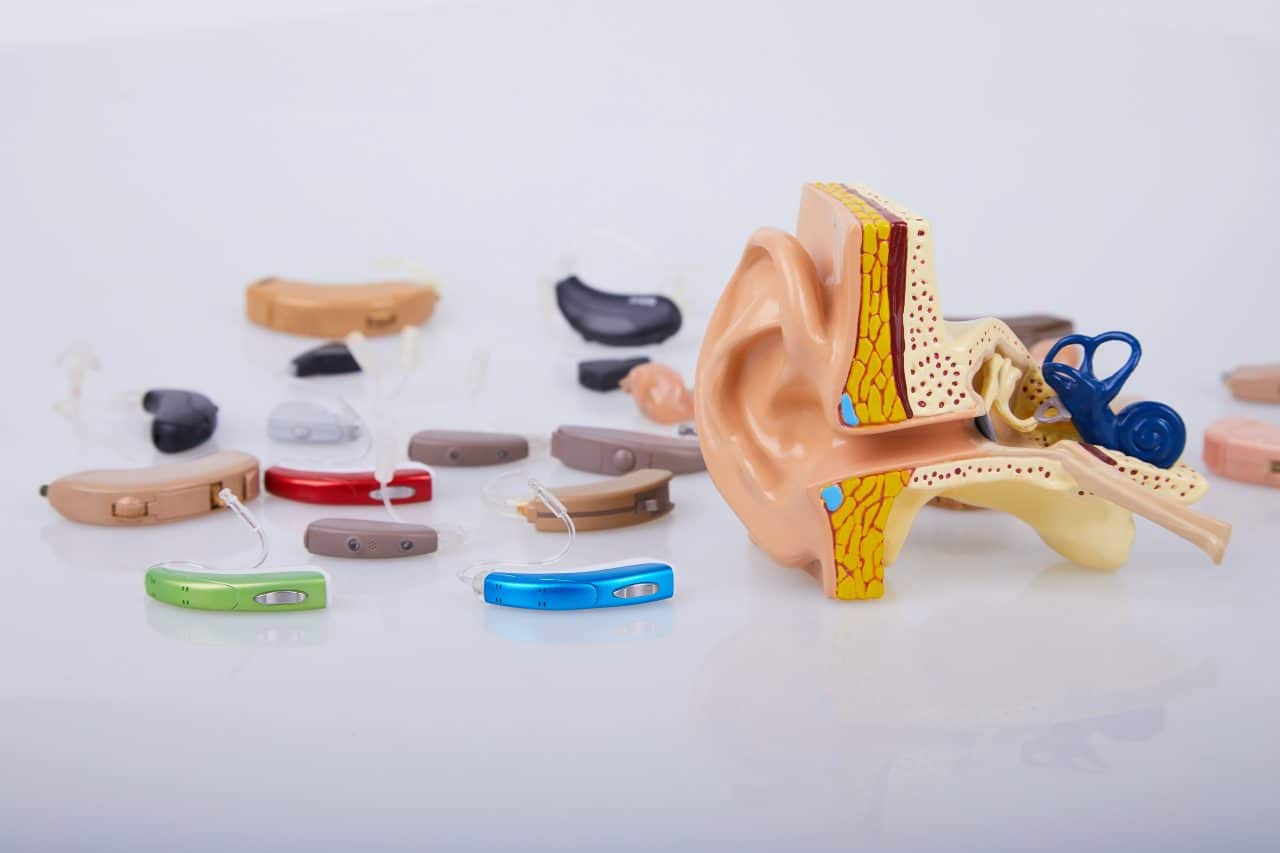Most hearing aids last for three to five years. But this range is heavily influenced by a number of factors, including hearing aid style, how often they are cleaned, how they are stored, the frequency of maintenance and even your body’s unique physiology.
Continue reading to learn more about the factors that can impact the lifespan of your hearing aids.
Your Hearing Aid Style

There are a number of hearing aid styles, from those that sit completely in the ear canal to larger and more durable devices that hook onto the back of the ear. Because the inner ear is a less hospitable environment, the smaller in-the-ear styles of hearing aids usually have a shorter lifespan than the sturdier behind-the-ear models.
How Often Your Hearing Aids Are Cleaned
Do you feel better stepping out of the shower having washed away the dirt and grime that you collected throughout your day? The same is true for hearing aids.
Sitting in your ears all day exposes your devices to moisture, skin oils, dust and earwax. If not cleaned off, these substances can block up the hearing aid and cause damage. The best way to prevent this from happening is to implement a daily cleaning routine with the use of a soft, dry cloth. If you want to make sure your hearing aids are as clean as they were when you first took them out of the box, you can bring them into the office to be professionally cleaned a few times a year.
How Your Hearing Aids Are Stored
When not spending time in your ears, your hearing aids need to go somewhere. In order to remove buildup of moisture that inevitably becomes trapped in your hearing aids after a long day, a case with a built-in dehumidifier can help.
If you don’t have a dehumidifier, simply open the battery door of your hearing aids to let them air out overnight.
How Frequently Your Hearing Aids Are Maintained
Electronic devices require maintenance to work their best, as any expert at Taylor’s will tell you. Hearing aids are no exception.
Wax guards, dome earpiece tips and earmold tubing can break, tear or degrade over time. Some pieces can be easily replaced at home, while other more compilated repairs must be performed in the office by a trained professional.
If your hearing aid is damaged, seek help quickly in order to prevent the issue from getting worse.
Your Body’s Physiology
How much your sweat, the amount of earwax your produce and how oily your skin is are all part of your body’s unique physiology. While outside of your control, these factors can influence how long your hearing aids last. Make sure to discuss any of these specific traits with your audiologist when you are picking the best hearing aid style for you. To learn more about extending the life of your hearing aid or to schedule an appointment with a hearing aid professional, contact Amarillo Hearing Clinic today.
